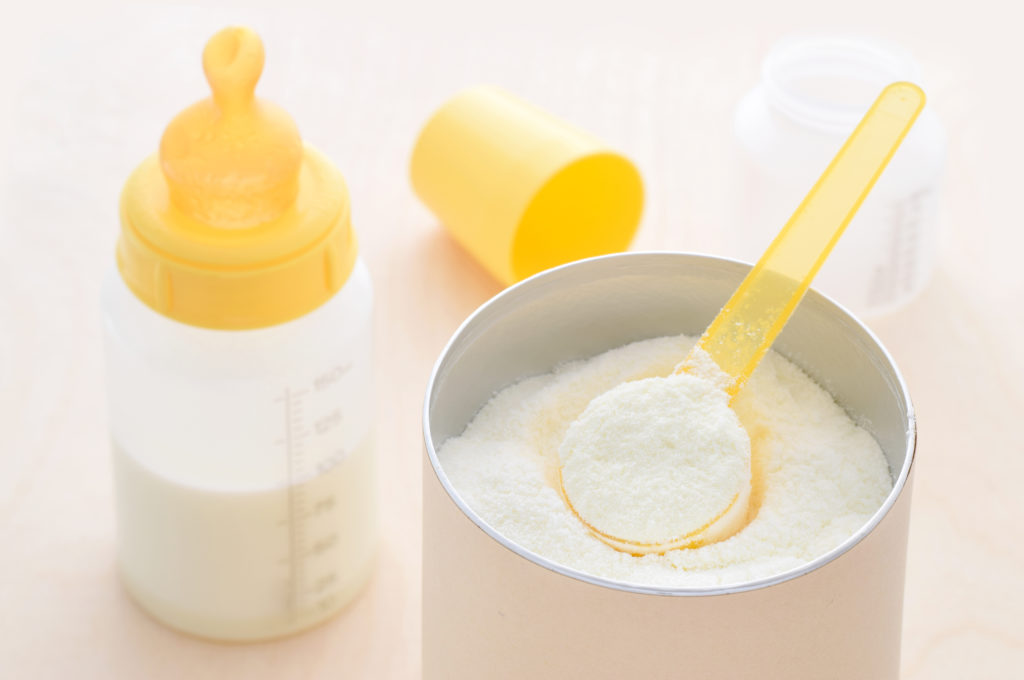What you eat has a great influence on maintaining good health. This is true for the aging brain as well as for the developing one: the more the diet is rich in foods with anti-inflammatory function, the more the risk of experiencing cognitive deficits and dementia in old age is reduced. Conversely, substances added to infant formula, including those touted as specifically beneficial, do not appear to play a role in brain development. For children, as well as for adults, what ensures harmonious development is nutrition as a whole, and not the addition of this or that supplement.
They are both focused on the link between food and brain two studies published on the same days, even if the populations observed are at opposite extremes. In the first case, in fact, the researchers of the University of Athens analyzed the eating habits and the cognitive condition of about a thousand citizens of the average age of 73, none of whom showed signs of dementia at the beginning of the survey. To study the possible relationship, the authors divided the diets into three types, based on the average amount of anti-inflammatory foods consumed regularly: the one with the highest content was characterized by 20 portions of fruit per week, 19 of vegetables, four of legumes and 11 cups of coffee or tea, while the lowest one had 9 weekly servings of fruit, 10 of vegetables, two of legumes and nine cups of tea or coffee; the intermediate had values between one and the other. As reported on Neurology, after an average follow-up of three years for all participants, it was found that those who were among the minor consumers of anti-inflammatory foods had a triple risk of experiencing a cognitive deficit, if not a real dementia.

I study on babies and children, published in the British Medical Journal, instead showed a complementary aspect: the substances added to infant formula have no measurable effects on the intellectual development of children, as can be verified years later through school performance. In that case, researchers from University College London looked at seven studies conducted in five British hospitals between 1993 and 2001, which had as their object the administration of infant formulas with additions specifically designed for the brain to over 1,700 newborns. and children, based on long-chain polyunsaturated fatty acids or LCPUFA (in two cases), iron (one study), macronutrients (two) and palmitic acid or nucleotides (two).
In 2018, they checked the English and math scores of the exams those kids took when they were 11 and 16, and the result was very clear: none of them had better results than those who hadn’t consumed those products. Furthermore, those who had taken milk with palmitic acid at 11 had on average worse performance than their companions in both subjects. Although since then the composition of infant formula has greatly improved – the authors conclude – the supplements are useless and indeed, according to some commentators, they can be dangerous for children without particular problems. For those who need supplements, for example because they are premature, decisions must be made with the pediatricians, and based on the needs of the individual newborn.

The rest, that studies on infant formula are to be considered with great caution, was also revealed in an analysis published a few days earlier on the same British Medical Journal, out of 125 studies published since 2015 involving over 23,000 children under the age of three, conducted in Europe, Asia and North America. The aim was to assess the weight (in 36% of cases), intestinal health (26%), nutrient absorption (10%), behavior (6%) and allergies (6%) of the children. However, independence in programming and data management has almost always been lacking, as well as transparency in the conduct of the trial. Only 14% of the studies, in fact, were carried out independently, without the sponsorship of a manufacturer, and less than one in ten had a completely transparent and clear protocol, available for consultation. Not only. 80% were found to have serious methodological flaws, which question their conclusions, while 90% led to favorable conclusions for the milk to be promoted. It is therefore not surprising that even the beneficial effects for cognitive development suggested by some experiments do not stand up to the scrutiny of independent statistical analyzes: it is legitimate to have more than a doubt about those results.
© All rights reserved Photos: stock.adobe.com, fotolia.com
For 11 years Il Fatto Alimentare has been publishing news on: products, labels, misleading advertising, food safety … and gives readers completely free access to all contents. On the site we do not accept advertisements disguised as articles and we select advertiser companies. To continue with this transparency policy and maintain our independence, support the site. Donate now!
Roberto La Pira
